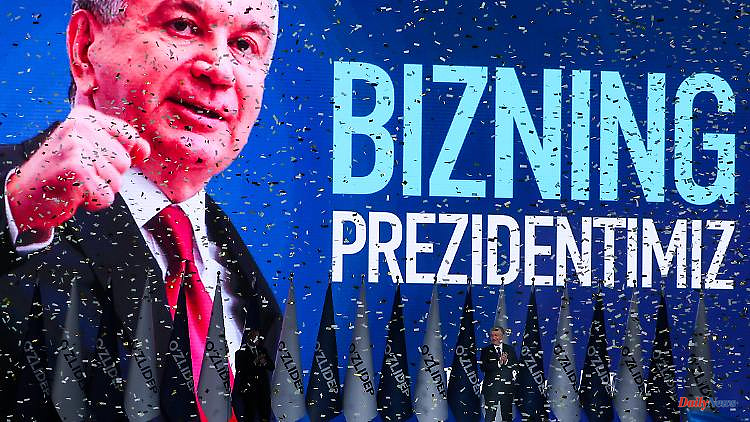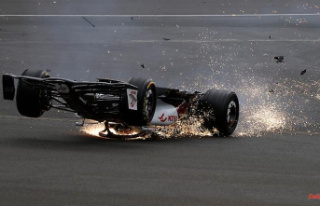In the authoritarian government of the ex-Soviet republic of Uzbekistan, the authorities violently suppress a revolt. Ruler Mirsiyoyev wanted to curtail the autonomy rights of the people in Karakalpakstan. There is concern in neighboring Kazakhstan.
According to President Shawkat Mirsijoyev, there have been "victims" in the anti-government protests in the autonomous republic of Karakalpakstan in Uzbekistan. "Unfortunately, there are casualties among the civilian population and among the security forces," said Mirsiyoyev in the afternoon during a visit to the region. He gave neither numbers nor did he specify whether it was about dead or injured.
On Saturday, the head of state declared a state of emergency in the autonomous republic. This was the government's response to violent protests in the region in the north-west of the Central Asian country. The four-week state of emergency is intended to ensure "the safety of citizens" and the "return to the rule of law," said the government's press service.
In the regional capital of Nukus, thousands of people demonstrated on Friday against plans to curtail their autonomy rights. It was the largest public protest against Mirsijoyev since he took office in 2016. According to the authorities, riots broke out during the protests. Some demonstrators tried to occupy public buildings. Authorities said they arrested several people who organized the riots and defied orders from the security forces.
Unannounced demonstrations like the one in Nukus are illegal in authoritarian Uzbekistan and are very rare. The desert region of Karakalpakstan is one of the poorest in the country. The region has around two million inhabitants.
"There have been unconfirmed reports of excessive use of force by security forces during the July 1 protests in Nukus," Human Rights Watch Europe and Central Asia director Hugh Williamson wrote on Twitter. He called for an investigation into what was happening.
The Foreign Ministry of neighboring Kazakhstan, whose government had violent protests put down in early January, expressed concern about the events in Uzbekistan. "We welcome and support the Uzbek leadership's decisions to stabilize the situation in Karakalpakstan," the ministry said in a statement.












